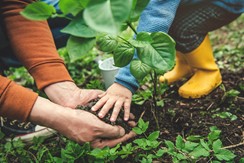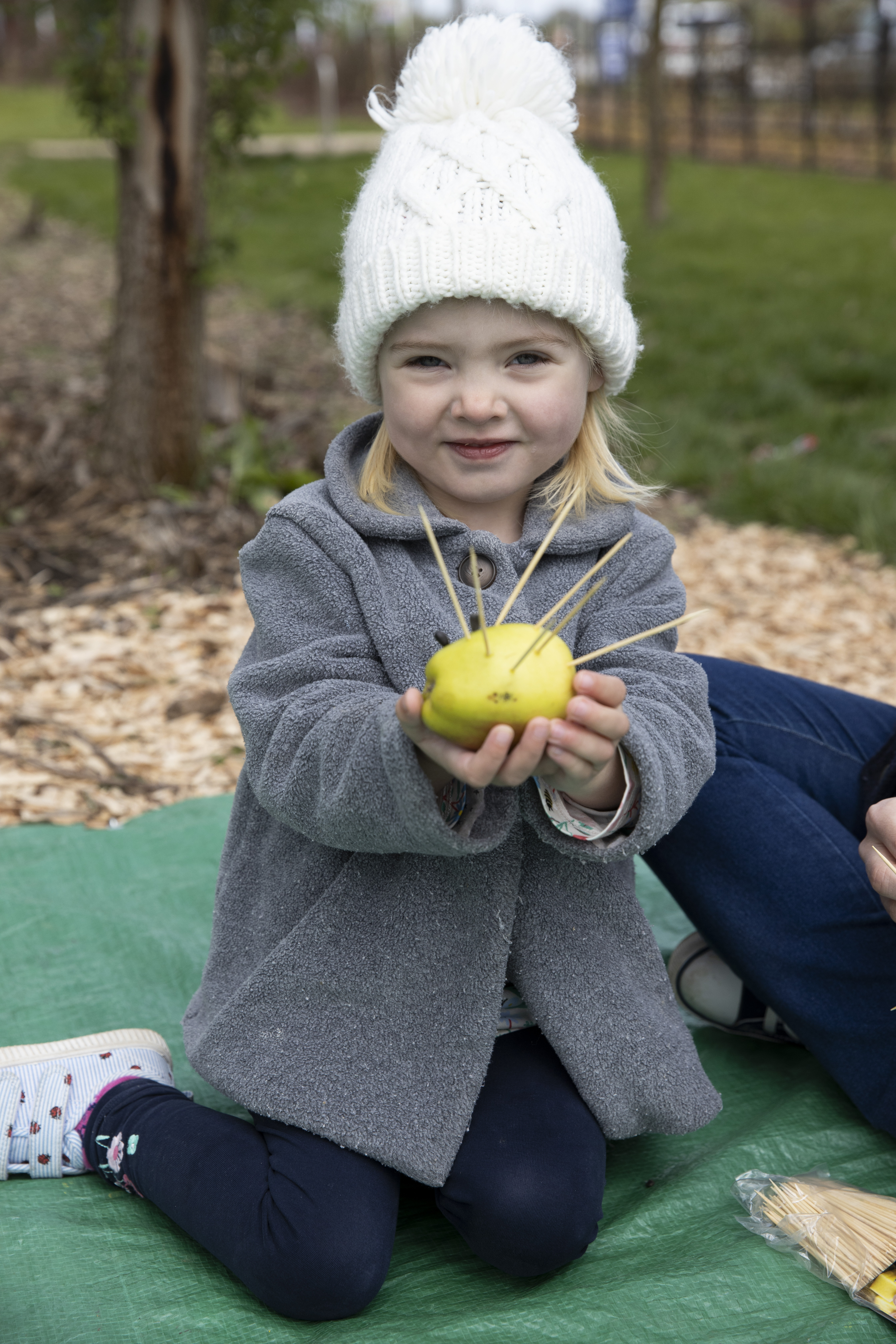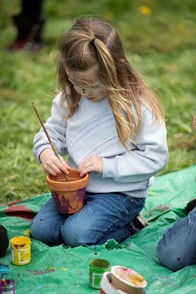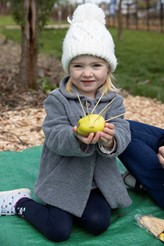Lockdown side effect could be a new generation of super scientists
New research from environmental charity Earthwatch, designed to help explore how people can watch well and develop their powers of observation, suggests that being trapped in lockdown could have unexpected, positive side effects.

Baby brain development expert, Professor Lynne Murray from Reading University and author of ‘The Psychology of Babies’ said:
“Babies and young children are like tiny scientists. They are constantly observing things around them, conducting little experiments by connecting what they see with what happens next, developing their brains and knowledge bank at the same time. Having an adult with them who observes and comments, and helps make positive connections as part of this process, is proven to increase their learning and development.
Lockdown has created the perfect environment for enhanced watching and learning, as parents have an unusual amount of free time to interact with their babies and children.”
Among a survey of over 2,000 adults in the UK, 59 per cent report spending more time observing nature outside, and crucially 45per cent report they are commenting or discussing more often than they would normally on what they see with their child or partner. It is this interaction and engagement which is so important, and unusually both male and female parents report exactly the same increase. 

The process of learning through watching and observing change continues throughout life. Having greater interaction and discussion of what is seen, for example with teenage children, can help develop understanding or help create more positive attitudes to learning and life.
In the survey just over a third of adults, 36 per cent reported that they felt their powers of observation had increased during the lockdown.
Watching something together, looking outward rather than at each other, is also thought to create a better, less confrontational setting for discussing complex issues together, and is another reason why watching well is a helpful life skill for all age groups.
Similarly, an improved ability to watch well could also help reduce anxiety levels, as two thirds, 67 per cent of adults in the survey report that watching something from outdoors leaves them with a sense of calm. The research supports the idea that focussing on nature has meditative qualities akin to practising mindfulness daily.
The Earthwatch research also proved that absence really does make the heart grow fonder, at least as far as nature is concerned. Almost three quarters, 72 per cent of survey respondents report missing the ability to be near nature during the lockdown with the top five elements of nature missed being:
- 51% the sea
- 41% woods or forest
- 33% the park
- 30% hills or mountains
- 25% rivers

Earthwatch spokesperson Sarah Staunton Lamb, Senior Engagement Manager, said:
“It would be great if one of the side effects of the lock down was giving us all enhanced powers of observation and the ability to watch well. It’s such a useful skill and the building block for many good things in life that require calm and attention. Perhaps it will help create the next generation of scientists and observers that our natural world needs.”
Full results of the Earthwatch ‘How to watch well’ research are available online at www.earthwatch.org.uk, including tips on how to watch and observe and develop the skills to question and comment in a constructive way.
The research and tips are part of Wild Days, Earthwatch’s weekly programme of free activities curated by Earthwatch scientists to connect families with nature and the school curriculum during lockdown.
Lynne Murray is a British developmental psychologist and academic, specialising in child development. She is a Fellow of the British Academy and Professor of Developmental Psychology at the University of Reading. Her authored works include ‘The Psychology of Babies’ and ‘The Social Baby’ in addition to more than 200 academic papers.
WatchingWell Research www.earthwatch.org.uk/watchingwell
Earthwatch commissioned research among the UK population from YouGov plc. It was conducted through an online survey among a sample of 2,542 UK adults aged 18 + between 12 - 13 May 2020. Results were weighted to be representative of the UK adult population.
Full results are available on the Earthwatch website with highlights below.
Q: Thinking generally about when you observe nature...Which, if any, of the following feelings does this leave you with a sense of?
|
|
All UK
|
Male
|
Female
|
|
|
%
|
%
|
%
|
|
Sense of calm
|
67
|
63
|
71
|
|
Sense of joy
|
50
|
44
|
55
|
|
Sense of wonderment
|
47
|
44
|
50
|
|
Sense of gratitude
|
37
|
31
|
43
|
|
No particular feeling
|
9
|
12
|
7
|
|
Sense of sadness
|
6
|
5
|
7
|
|
Sense of boredom
|
3
|
4
|
3
|
|
Sense of irritation
|
2
|
2
|
1
|
|
Sense of having wasted time
|
2
|
2
|
2
|
|
Some other feeling, please write in
|
4
|
4
|
4
|
Q: Since the UK has been in lockdown as a result of the Coronavirus (i.e. since 23rd March) how much more or less would you say you're talking or commenting on what you're watching with your children when observing nature together, or is it about the same?
|
|
All UK
parents
|
Male
|
Female
|
|
|
%
|
%
|
%
|
|
Much more
|
17
|
17
|
17
|
|
A little more
|
28
|
28
|
28
|
|
Total more
|
45
|
46
|
45
|
|
|
All UK
adults
|
Male
|
Female
|
|
|
%
|
%
|
%
|
|
Much better
|
10
|
7
|
13
|
|
A little better
|
26
|
24
|
28
|
|
Total better
|
36
|
32
|
41
|
Walk and Talk Therapy
Walk and Talk is an emergent psychotherapeutic approach. It has been found in studies that walking side by side can promote a collaborative way of working and can help shift ‘stuckness’ in clients and facilitate psychological processing.
Mindfulness
Mindfulness-based cognitive therapy (MBCT) combines mindfulness techniques like meditation, breathing exercises and stretching with elements from cognitive behaviour therapy to help break the negative thought patterns that are characteristic of recurrent depression.
- connecting people with the natural world
- monitoring the health of our natural resources
- informing the actions that will have the greatest positive impact.